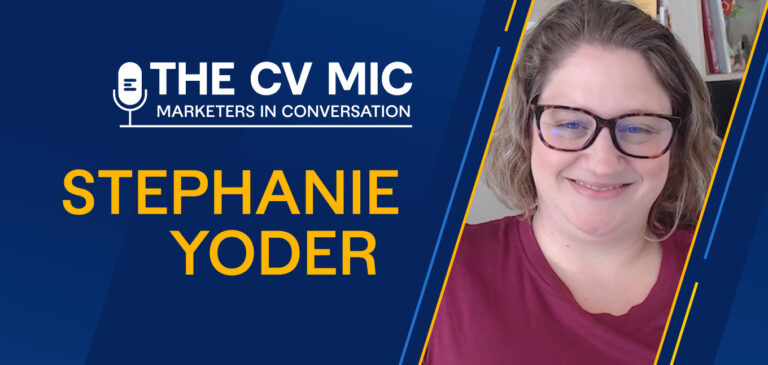Perhaps because screenwriters are responsible for the plot lines, many films and television shows glamorize the lifestyle of a journalist. From Carrie Bradshaw’s infamous sprawling Upper East Side apartment funded by a single article a week to the massive office of a newly-30-year-old magazine editor in ’13 Going on 30,′ a wordsmith’s profession is often illustrated as luxurious.
But ask any writer you know about how they make ends meet and chances are high they’ll present a laundry list of their countless gigs, that when added together, actually make a sustainable income.
Even though many publication staffs continue to shrink and the days of $2/word pieces are few and far between, it is possible to accumulate wealth as you check off magazines from your byline bucket list. But it takes time — and often, a shift in your attitude toward the job description of a “writer.”
In this article, writers who make $100K or more share their secrets to success.
Freelance Writer Success Secrets
1. Emphasize the value of your time.
Depending on the story or project, getting from assignment to payment is a time-consuming process. In addition to securing sources, transcribing interviews, optimizing content for web, sometimes building the piece in the CMS, going through editing rounds and, eventually, seeing the direct deposit come into your inbox, you’ve likely logged upwards of five or more hours on a single article.
For Ann Adams,* who brought in $103,000 last year, being strategic about her energy exerted per client proved to be the most impactful on adding zeros to her income. In the past 15 years — nine of which she was freelance full-time — she’s grown her business from $40,000 to six figures, with around 60 percent coming from content marketing and 40 percent from journalism. (*Pen name.)
To get here, she focused on a few things:
- Becoming picky with who she onboarded.
- Charging — and sticking to — late fee requirements.
- Asking for a raise when it’s warranted.
So what does this mean? Being unapologetically picky about who she works with:
“My goal is to earn $100+ an hour, so if I don’t think an assignment is going to net me that or more, I either negotiate or turn it down. It takes time to get to know a client, so one-off assignments that are low paying — even with a high hourly rate — aren’t worth it. Clients who don’t know what they want and don’t provide clear directions will eat up your time and not pay you for that. If a client is going to require multiple edits, I need to know they’ll pay for that with a higher rate or I’ll be paid a good hourly rate.”
2. Have an anchor client — and give it time to grow.
For a traditional, 401K-included career, think of the ladder. You have to start entry-level before you can be appointed to a manager, and prove your people-and-deadline wrangling skills to be promoted to executive. Though you might not have a boss when you’re a freelancer, the same metric applies.
Elizabeth Carriage accumulated around $12K a month from her writing business, awarding herself a $6K salary a month, with the rest covering occasional contractors or other business needs. She’s been writing for 15 years, from advertising agencies stateside and abroad and other gigs along the way.
And though it has been a long process, she stresses the importance of writing experience for aspiring penners, with five years being the minimum. “This gives you built-in contacts and clients when you go freelance as well as a steady income while you get experience. I couldn’t have gone freelance without having these initial clients — which were mostly contacts from my former jobs,” she shares.
Today the majority of her clients come from the following revenue flows:
- Copywriting
- Corporate writing
- Royalties from her book
- Freelance articles and essays
- An occasional travel guidebook.
To arrive at this lifestyle, she’s relied on a few anchor clients that provide a dependable stream of work, and she’s created a niche for herself, all tactics that have ensured her paychecks. Most of all though? Starting from day one, she’s worked hard to earn the rep and experience.
Carriage advises:
“You must have inner motivation and drive. You must put your butt in your chair and work hard. You need an accountant. It’s wonderful and freeing, but you also have to have grit to deal with rejection and the ability to keep going even when things aren’t going as smoothly as you’d like. You have to be a boss… of yourself.”
3. Don’t discount your network… or your possible net worth!
Too often, freelancers and solopreneurs — and especially females — aren’t comfortable negotiating rates. Or, asking for what they want, instead of what is offered to them. Writer and editor Jennifer Bradley Franklin estimates her income right over $100K per year, with 60 percent from content writing and 40 percent from editorial assignments.
She says the majority of her work comes from corporate clients and connections she’s fostered over the years, none of which she could have sourced without tapping into her network.
Even if you’re hesitant to offer your services, the more you present yourself as a brand and a professional service, the more leads you’ll collect, building your client list and your savings account, says Franklin:
“If you’d like to be doing more corporate work, reach out to those in your network who might know someone who needs what you do. Send cold letters of introduction or ask to be introduced by a mutual connection. Don’t wait until your workload runs dry to start networking. Keep in touch with potential clients so you stay at the top of their radar. Even if they don’t need your skills at the moment, they’ll think of you when they do.”
When a person reaches out to you about a contract opportunity, Franklin says how you respond is essential to success:
- Always ask for a project rate, not an hourly.
- Ensure their preferred working style matches your best practices.
- Keep up with all invoicing and following-up professionally and appropriately.
And when they reach out to you with a contract opportunity? Be adamant about your rates and what makes the most sense for your working style.
For Franklin, that means asking for a project rate, instead of an hourly one, with corporate clients:
“It gives the client peace of mind because they know exactly how much money they’ll be spending, and, it encourages you to work smart. When you price by the hour, you make less money the faster or better you get. Hourly billing means that your financial incentives and that of your client are at odds: You can earn more by being slow, but the client pays more for that inefficiency.”
4. Consider freelancing as a full-time job.
Freelance health and wellness writer Marygrace Taylor brought in $150K, while in 2016 and 2015, she teetered above the six-figure mark. Her workload comes from freelancing for publications, as well as corporate clients, healthcare writing and books.
Sound like a lot to manage? It is, which is why she says a routine is a must to meet her client demands:
“Keeping a regular schedule helps me be the most productive. It ensures that I do high quality work. Trying to write at night or on the weekends just doesn’t work for me. Of course, one of the perks of freelancing is being able to set my own schedule, so sometimes I’ll wrap up early or start a little late or take the surprise personal day. But usually if I take time off, I plan it in advance, just like I would if I was at an office job.”
A typical day may look like this for Taylor:
- Waking up at the same time.
- Writing stories.
- Answering emails.
- Taking brief lunch and breakfast breaks.
- Logging off at a decent time, much like an office employee.
Having this regimented outlook allows her to exceed expectations and never fall short on an assignment — no matter how big or small:
“Freelancers have a reputation for not always being the most reliable. I feel like just being someone who can always be counted on puts me at a big advantage. It’s helped me develop long-term relationships with many clients, to the point where I’ve been told that I’m their favorite writer or top choice. The compliments are nice, but more importantly, this means that editors and clients come to me with assignments instead of the other way around. So rather than having to spend valuable time pitching and marketing myself, I almost always have a steady flow of work coming my way.”
5. Adopt and develop a financial plan.
In 2019, personal finance journalist and President of Blossomers Media, Dori Zinn, broke six figures, coming in around $144,000 in earnings. Though she freelanced both full-time and while working other jobs, the last lap around the sun was the first one she felt fully devoted to her company.
Her motivation was sourced from an experience many writers are all-too-familiar with: going through a series of layoffs. After the second unexpected pink slip in two years, she realized she had all of the tools she needed to succeed on her own, so she hit the ground running, pitching every last editor she could find:
“After my first layoff, I didn’t have the confidence to handle the ebbs and flows of self-employment and I failed miserably. By the time the second one came around, I outlined what I needed to make as well as financial wants for the future. Within six months of my layoff, I earned almost $16,000 in a month. That’s when I knew I could do this on my own.”
For Zinn, there are a few important steps in making a lucrative full-time freelance career a reality:
- Most importantly, knowing how much was needed to survive.
- Figuring out how to choose the gigs that pay for the time they require.
- Understanding how and when to ask for more money.
- Have a game plan for your business.
Even if writers, by nature, are much more comfortable with words, adopting and developing a financial strategy will not only make you feel more comfortable but Zinn says increases focus, too. Once you figure out the initial figure you need to make ends meet, invest in your future and save, you can determine how much you need to make per hour to be successful — and reach those six figures.
As Zinn notes:
“I started out with a $50/hour goal, then moved up to $100, and kept moving up. Now I look to earn about $150-$200 per hour on each assignment. Keep in mind I don’t charge hourly, I just look at how much I could earn hourly. So when I look at potential assignments, I consider how long it’ll take me. A $400 assignment might sound lucrative, but does it take me six hours to write or two? I try to take on assignments that have the most earning potential, so I thoroughly review them before accepting them.”
From there, Zinn encourages hustlers to not be afraid of asking for more money, especially once they’ve proven themselves to editors. Even if it’s a 25 percent increase, it can make a huge difference in your bottom line. “If an editor declines the raise, ask what you can do in the future to get your pay bumped up. Then move onto asking your next editor/client. If you’re working too much, it might be time to drop a client,” she shares. “Consider your lowest-paying one — or biggest pain client — as first on the chopping block. This is a very hard step to take but it’s crucial to financially moving up.”
6. Don’t let it become personal.
When most writers decide to turn their passion into their full-time careers, it is a major personal investment. Not only are you going out on an — often unsteady — limb but you are putting yourself out there many times, with fear of rejection. It’s something many writers face, even with decades of experience.
After being fired from a bad job in one of the most expensive towns in Colorado, B2B content strategist and writer Alexandra Sheehan went into mega survival mode. She started by tapping into her existing clients to see if they needed more work with her newly opened schedule. It was a competitive market but one lead led to another, and by 2018, her income surpassed the six-figure mark.
Last year, she brought in more than $175K. “I focus on providing a really high-quality product in a specific niche, so clients seek me out for experience and expertise in the area. They like that they don’t have to handhold a writer through complex B2B topics, and that I have access to a network of existing industry connections for examples and collaborations,” she shared.
For Sheehan, success as a freelancer boils down to a few simple commitments:
- Quality work.
- Consistent deliverables.
- Remaining professional — and not taking anything personal.
The last one is key since writing can feel inherently personal. No matter if you’re a ghostwriter, a freelance journalist or an author, editing is part of the game.
Getting discouraged by this fact will only delay progress she says:
“In this field, your work is constantly scrutinized, picked apart, and even tracked for performance. You will get feedback. You will get good feedback and you will get bad feedback. You will have to push back sometimes and other times you will have to do what the client wishes even though you know it’s not the best approach. Try not to get too attached to your work. When you are too close to something personally, it’s hard to take constructive criticism or feedback. You might love putting together a poetic sentence, so artfully crafted that Hemingway himself would be impressed. A strong passion for words may make it hard to swallow feedback. Don’t take anything personally and grow a thick skin. If that’s truly impossible, hire an editor to handle client feedback for you.”
7. Always be reliable — and alert.
Last year gave freelance lifestyle reporter Wendy Rose Gould plenty to celebrate: she broke six figures! Bringing home $115,000 was that much sweeter since it was a goal she made at the start of 2019, and a few months into 2020, she’s projecting to the same or more.
When she first started freelancing, however, she barely broke $25,000 — but she kept pushing through:
“It took a lot of patience and a ton of hustle to get to where I am. Today, I cannot imagine working a 9 to 5 reporter job — as I did in the past — not just because I treasure my existing lifestyle, but because it would mean a substantial pay reduction.
For Gould, it’s important to adopt a business mindset when it comes to a freelancing hustle.
This includes:
- The actual writing.
- Always pitching and bringing on new clients.
- Administrative tasks including invoicing and emailing.
- Maintaining a productive daily routine.
The key, Gould says, is to become the go-to writer that any and every editor wants to hire. After all, no one wants to work with someone who is unreliable:
“For writers, that means more than just turning something in on time or communicating a need for a deadline extension. It means taking time to thoroughly think through and read through a story so that it requires very few, if any, edits. It means sourcing outstanding experts for reported pieces, thinking about the overall arc of a piece versus throwing sentences together, and going above and beyond to make your editor’s job easy.”
All of this is part of nurturing business relationships, an essential part of any industry — but especially in the journalism field that’s often a rotating door of editors coming and going. “See what the outlet’s content needs are every month, ask for feedback on a particular piece that either did well or did poorly, tell them you’ve seen and made note of their edits after a piece publishes, send kind words about a story you liked that posted to the site by another author, and remind them periodically that you’re available to take on assignments,” she shares. “I’ve consistently worked with one client for 15 years — since I was a sophomore in college and interned for them! — and I’m really proud of that.”
So how can you make that six-figure income a reality? With these tips, dedication and plenty of ups and downs, you’ll arrive at that dream salary. And who knows? Maybe you’ll even surpass it!
Unlock Your Freelance Writer Success
As a freelance writer, it can take a while to grow a full-time career. But, there are ways you can speed up your success. For example, if you join our Talent Network, we can help pair you with top brands that match your expertise and skill level. Get started today to level-up.










